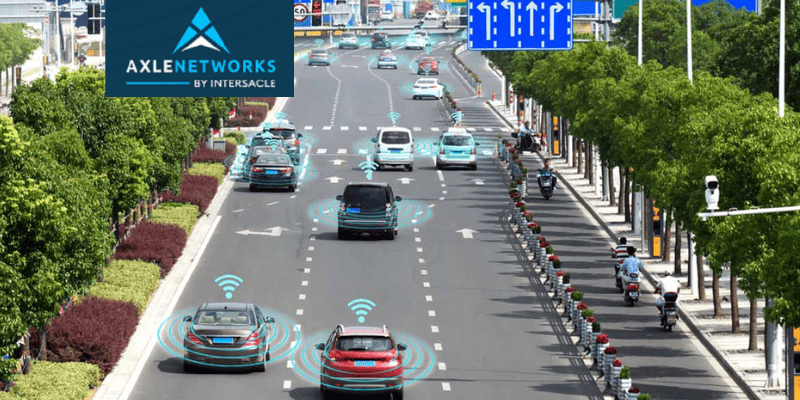
Smart Stadiums: Redefining the Fan Experience
Crowd roar gets a tech upgrade! Smart stadiums are transforming the way we experience live sports. Imagine seamless mobile ordering, interactive navigation, and real-time statistics, all on your phone.
Imagine holographic reflections, AI-driven concessions, and interactive features that blur the lines between physical and digital. Smart stadiums are more than just bells and whistles; they are a model for a future in which fans actively participate in the game. Get ready for an unforgettable and interactive experience in the stadium of tomorrow!
Real-World Showcase: Smart Stadiums in ActionSmart
- Mercedes-Benz Stadium (Atlanta, USA): This architectural marvel boasts a retractable roof and a 360-degree halo board, the largest high-definition video board in the world.
- Tottenham Hotspur Stadium (London, England): This tech-powered marvel features a fully-electric design and a world-first movable pitch that reveals an NFL-regulation field underneath. Sensor technology tracks crowd movement, allowing for dynamic adjustments to optimize traffic flow.
- SoFi Stadium (Los Angeles, USA): This architectural marvel boasts the largest video board in the world (spanning the entire length of one end zone) and a technologically advanced “halo” video board circling the upper deck. The stadium utilizes AI to analyze concession sales and fan movement, optimizing operations and inventory management.
- Allegiant Stadium (Las Vegas, USA): This technologically advanced stadium features a retractable roof and the world’s first stadium-wide Diamond View LCD system embedded in the seating fascia, delivering instant replays and personalized content to every seat.
Challenges and considerations
- Privacy and data security:
- The cornerstone of the smart stadium experience is the vast amount of fan data collected.
- Solutions: Transparency is key.
2. Technological integration and cost:
- Building or renovating a smart stadium involves integrating a complex network of technologies: broadband networks, sensor networks, AI systems, and mobile applications.
- Solutions: A phased implementation approach can be beneficial, allowing the initial investment to be focused on core functionality. Establishing strong partnerships with technology companies can provide access to expertise and potentially favorable pricing for hardware and software solutions.
3. Digital divide and accessibility:
- Excluding these people from the Smart Stadium experience would go against the principles of inclusiveness.
- Solutions: A multi-tiered approach is crucial.
4. The human touch: balancing technology and personal interaction
- The heart of the fan experience lies in the raw emotions, shared cheers, and energy of the live event. Over-reliance on technology could risk creating a sterile and impersonal atmosphere.
- Solutions: Technology should enhance the human experience, not replace it. Smart features such as interactive games should complement the live action on the pitch, fostering a sense of community and shared enthusiasm.
Challenges and Considerations
Building Trust in the Tech Age
The smart stadium revolution is undeniably exciting, but it’s crucial to address potential challenges that could hinder its success. A key concern is “privacy”. As data collection becomes an integral part of the smart stadium experience, ensuring transparency and user control over personal information is paramount. Stadiums should clearly communicate what data is collected, and how it’s used, and provide fans with options to opt out of certain data collection practices. Robust data security measures are also essential to prevent unauthorized access or misuse of sensitive fan data.
Safeguarding the Digital Arena
Another critical consideration is “cybersecurity”. With increased reliance on technology, smart stadiums become potential targets for cyberattacks. Implementing strong cybersecurity measures like data encryption and regular security audits is vital to protect fan data and ensure the smooth operation of stadium systems.
Inclusivity for All
Finally, smart stadiums must prioritize “accessibility and inclusion”. For instance, offering assistance booths or manned ticketing options alongside automated systems caters to those who prefer a more traditional approach. By fostering an inclusive environment where technology empowers rather than excludes, smart stadiums can reach their full potential of enhancing the experience for every fan.
Fans can look forward to a seamless and engaging experience, from navigating the stadium with ease to enjoying real-time updates and interactive entertainment. Teams gain valuable fan insights to strengthen loyalty and personalize offerings, while stadium operators benefit from increased efficiency, data-driven decision making, and potential revenue streams.
The future of smart stadiums is brimming with possibilities.
As technology continues to evolve, we can expect even more immersive experiences that blur the lines between the physical and digital worlds. Imagine holographic highlights or AI-powered personalized concessions.
Smart stadiums are not just about bells and whistles; they are a blueprint for a connected future where fans are active participants, not passive observers. This exciting transformation promises to redefine the way we experience and enjoy the thrill of live sports.
A Connected Future for Fan Experience
Smart stadiums represent a paradigm shift in the way we experience sports. They weave technology into the very fabric of the venue, creating a personalized and interactive environment that benefits fans, teams, and stadium operators alike.
Fans can look forward to a seamless and engaging experience, from navigating the stadium with ease to enjoying real-time updates and interactive entertainment. Teams gain valuable fan insights to strengthen loyalty and personalize offerings, while stadium operators benefit from increased efficiency, data-driven decision making, and potential revenue streams.
The future of smart stadiums is brimming with possibilities
As technology continues to evolve, we can expect even more immersive experiences that blur the lines between the physical and digital worlds. Imagine holographic highlights or AI-powered personalized concessions.
Smart stadiums are not just about bells and whistles; they are a blueprint for a connected future where fans are active participants, not passive observers. This exciting transformation promises to redefine the way we experience and enjoy the thrill of live sports.
Building Fan Trust with Transparent Data Practices in Stadiums
1. Why are stadiums collecting data about fans?
Stadiums utilize data collection to personalize your experience, offering features like targeted food recommendations, real-time game stats on your phone, and interactive games tailored to your interests. This data also helps teams understand their fan base and optimize offerings to better cater to your preferences.
2. What kind of data is collected?
- Data collection can include information like your purchase history at concession stands, location within the stadium (through your phone’s WiFi or Bluetooth signal), and even data from wearable fitness trackers if connected to stadium apps.
3. Isn’t all this data collection an invasion of privacy?
- Transparency is key.
4. How can I be sure my data is secure?
- Reputable stadiums implement robust security measures like encryption and regular vulnerability assessments to safeguard your data against breaches or misuse.
5. Can I access my data?
- Stadiums committed to transparency should allow you to access and review your data, ensuring its accuracy and allowing you to rectify any errors.
6. What happens if there’s a data security breach?
- Stadiums with strong data practices have clear incident management plans. They should be transparent in communicating any security breaches and work to rectify the situation quickly.
7. How can I learn more about data privacy at the stadium?
- Look for resources provided by the stadium itself, such as dedicated web pages or information kiosks. You can also contact the stadium directly with any questions or concerns.
8. Can I choose not to have my data collected?
- Yes! Responsible stadiums will offer clear opt-in and opt-out options for data collection. While this might limit some personalized features, you’ll still be able to enjoy the core stadium experience.
9. Won’t relying solely on technology make the experience impersonal?
- Technology should enhance the human experience, not replace it. Smart features should complement the live action, fostering a sense of community while ensuring adequate staffing remains available for wayfinding and customer service.
10. How can I voice my opinion on data practices at the stadium?
- Many stadiums welcome feedback. Look for designated channels like surveys, online forums, or even contact information for a data privacy officer. Your voice matters in shaping responsible data practices.
Unlocking the Future of Fan Experience
1. What exactly is asmart stadium?
- A smart stadium leverages technology to personalize and enhance the fan experience. Imagine seamless mobile ordering, interactive navigation, and real-time game stats all accessible through your phone. These are just a few examples of the features that make a stadium “smart.”
2. What are the benefits of smart stadiums for fans?
- The benefits are plentiful! Fans can expect a more convenient and engaging experience. Imagine eliminating long concession lines with mobile ordering, navigating the stadium with ease using interactive maps, and participating in interactive games and polls on your phone.
3. How do smart stadiums benefit the teams?
- Data collected from fan interactions within the stadium provides valuable insights for teams. This allows them to understand their audience better, personalize marketing campaigns, and potentially improve game strategies based on in-game analytics.
4. What are the advantages for stadium operators?
- Smart stadiums offer a win for operators too. Streamlined operations through automated ticketing and cashless transactions translate to faster service and reduced costs. Real-time data allows for dynamic adjustments to optimize resource allocation and ensure crowd control.
5. Isn’t all this technology expensive?
- Building or retrofitting a smart stadium does require a significant upfront investment. However, the potential for increased revenue through targeted concessions and improved operational efficiency can offer a strong return on investment.
6. What about fans who aren’t comfortable with technology?
- Smart stadiums should be inclusive. While mobile apps offer a central hub for many features, alternative options like phone-based ordering or physical kiosks for concessions should be available. User-friendly interfaces and clear signage are also crucial for ensuring everyone can participate.
7. Won’t all this technology make the game-day experience impersonal?
- Technology should enhance the human experience, not replace it. Interactive features should complement the live action, fostering a sense of community.
- The future of smart stadiums is brimming with possibilities! Imagine virtual reality experiences allowing fans to see the game from the player’s perspective, or biometric integration for personalized concessions or even in-game rewards based on real-time physiological data.
9. Are there any privacy concerns with smart stadiums?
- Data collection is a cornerstone of smart stadiums, and privacy is a major concern. Transparency is key. Robust security measures are essential to safeguard sensitive data.
10. What’s next for smart stadiums?
- The future of smart stadiums is constantly evolving. Get ready for an unforgettable and truly interactive experience at the stadium of tomorrow!
A Connected Future for Fan Experience
- Smart stadiums represent a paradigm shift in the way we experience sports. They weave technology into the very fabric of the venue, creating a personalized and interactive environment that benefits fans, teams, and stadium operators alike.
- Fans can look forward to a seamless and engaging experience, from navigating the stadium with ease to enjoying real-time updates and interactive entertainment. Teams gain valuable fan insights to strengthen loyalty and personalize offerings, while stadium operators benefit from increased efficiency, data-driven decision making, and potential revenue streams.
- The future of smart stadiums is brimming with possibilities. As technology continues to evolve, we can expect even more immersive experiences that blur the lines between the physical and digital worlds. Imagine holographic highlights or AI-powered personalized concessions.
- Smart stadiums are not just about bells and whistles; they are a blueprint for a connected future where fans are active participants, not passive observers.


